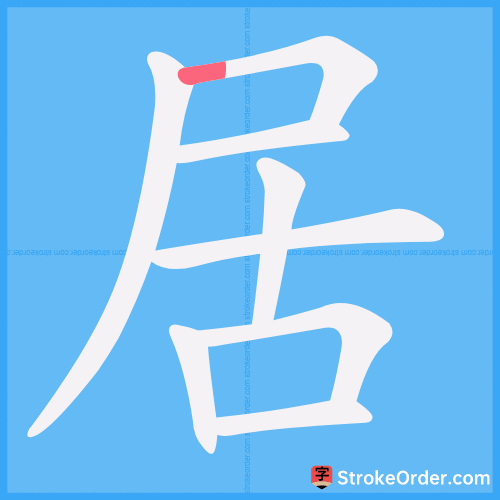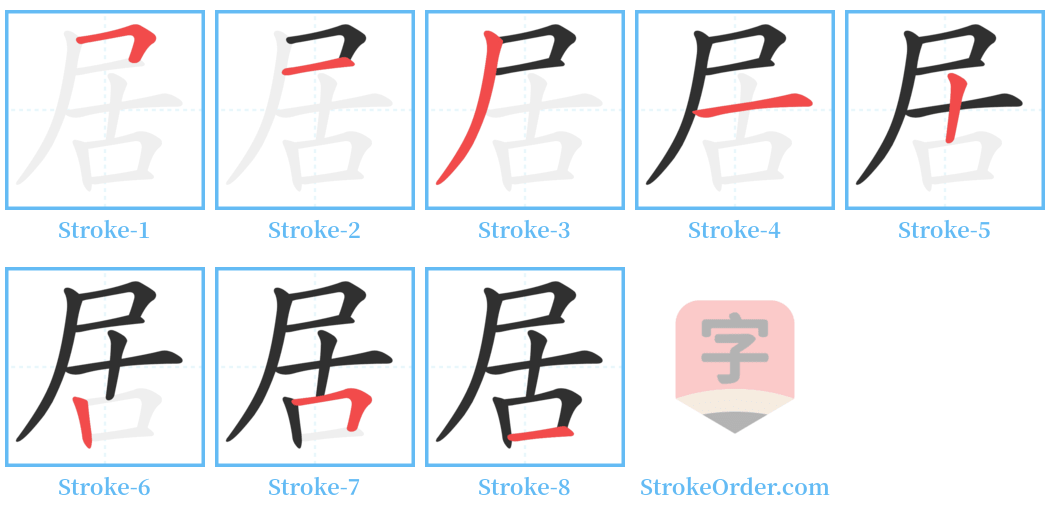居 Stroke Order
Animated Stroke Order of 居

Stroke Order Diagrams for 居

Step-by-Step Handwriting Guide for 居

Learn to Write Chinese Characters with Video Tutorials
Watch the video of writing the Chinese character "居", learn the correct stroke order (笔顺) of the character "居", and master the standard way of writing the character "居".
Free Printable Handwriting Practice with Stroke Order: 居
Printable Writing Practice Worksheet of "居" in Portrait Orientation (Tian Zi Ge)

Printable Writing Practice Worksheet of "居" in Landscape Orientation (Tian Zi Ge)

Information of 居
Pinyin
jū
Radical
尸
Strokes
8 strokes
Usage
★★★★★
Definition
reside
居 [jū]
[Verb]
1. Dwell; live; reside.
2. Occupy; take up space.
3. Store up; accumulate.
4. Be in; be positioned.
5. Manage; put in order.
6. Stop; rest; stay.
7. Hold a post; serve in a position.
8. Be seated; sit down.
9. Arrogant (alternative meaning via “倨”).
[Meaning elaboration]
1. Dwell: To call home.
Examples: 隐居 (live in seclusion), 住处 (place of residence).
2. A place of residence: New dwelling, old residence, moving residence, a small home (蜗居).
3. Occupy: Occupy first (居首), occupy space.
4. Be in a state of: Carry a certain mentality (居心).
5. Store up: Rare commodities can be stored (奇货可居).
6. Stop; rest: Stay stationary (居守).
7. Ordinary; usual: In daily life (平常).
8. Surname.
[Noun]
1. Residence; dwelling; house.
2. Usual living situation.
3. Restaurant (a place where one can eat snacks, drinks, or meals).
Examples: 六朝居 (Six Dynasties restaurant), 同和居 (Tonghe restaurant).
[Grammatical particle]
1. Used at the end of a sentence for a questioning tone.
Examples: 谁居?(Who is here?), 何居?(What do you mean?).
Zhang Juzheng (1525-1582), Grand Secretary during the Ming dynasty, credited with bringing the dynasty to its apogee
Juyongguan, frontier fortress on Great Wall north of Beijing, in Changping district 昌平區|昌平区[Chang1 ping2 qu1]
Input Method for 居
Pinyin
ju1
Wubi
ndd
Cangjie
sjr
Zhengma
xmej
Four Corner
77264
Unicode
U+5c45
Same Pronunciation Characters